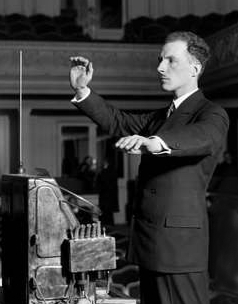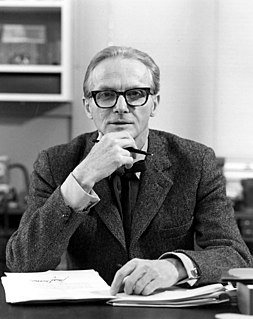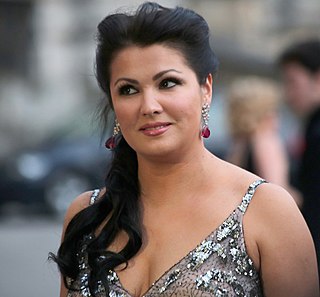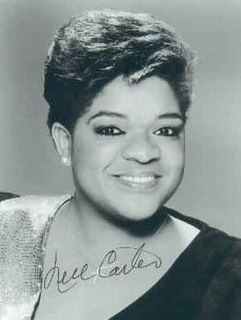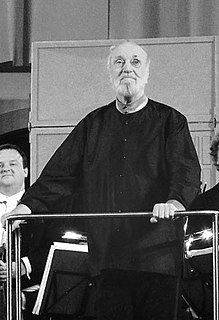A Quote by Gustavo Dudamel
I think it's a very important collaboration between the conductor and the orchestra - especially when the conductor is one more member of the orchestra in the way that you are leading, but also respecting, feeling and building the same way for all the players to understand the music.
Related Quotes
Before Liszt, a conductor was someone who just facilitated the performance, who would keep people together or beat the time, indicate the entries. After Liszt, that was no longer the case; a conductor was someone who shaped the music in an intense musical way, who played the orchestra as an instrument.
There are two types of conductors. One is the good conductor who can do passionate music but also listen to the singers and do the orchestra. And then there are great conductors, who have their own opinion on the music, who are ruling everything - and not listening much to the singers, but the orchestra play amazingly.
I am the conductor for life of the Staatskapelle in Berlin, which fills me with tremendous joy because I feel absolutely at one with them. When we play, I have a feeling that together we manage to create one collective lung for the whole orchestra so that everybody in the stage breathes the music in the same way.
What appeals to me about an American music directorship is the involvement of the conductor with the orchestra and the community. I think that's a fantastic thing. In Europe, being principal conductor means merely that you're the person who does most of the concerts. For me, that simply isn't enough.
I have had much pleasure in working with Orphei Drängar during my time as chief conductor of the Gothenburg Symphony Orchestra, and I consider OD to be one of the most brilliant men´s choirs in the world. The singers are highly professional and their repertoire is of a very wide range, but then they have been trained for years by Eric Ericson, the world´s leading choir conductor. I also admire the strength and the beauty of their voices. OD is an extraordinary powerful choir!
The great myth is the manager as orchestra conductor. It's this idea of standing on a pedestal and you wave your baton and accounting comes in, and you wave it somewhere else and marketing chimes in with accounting, and they all sound very glorious. But management is more like orchestra conducting during rehearsals, when everything is going wrong.


